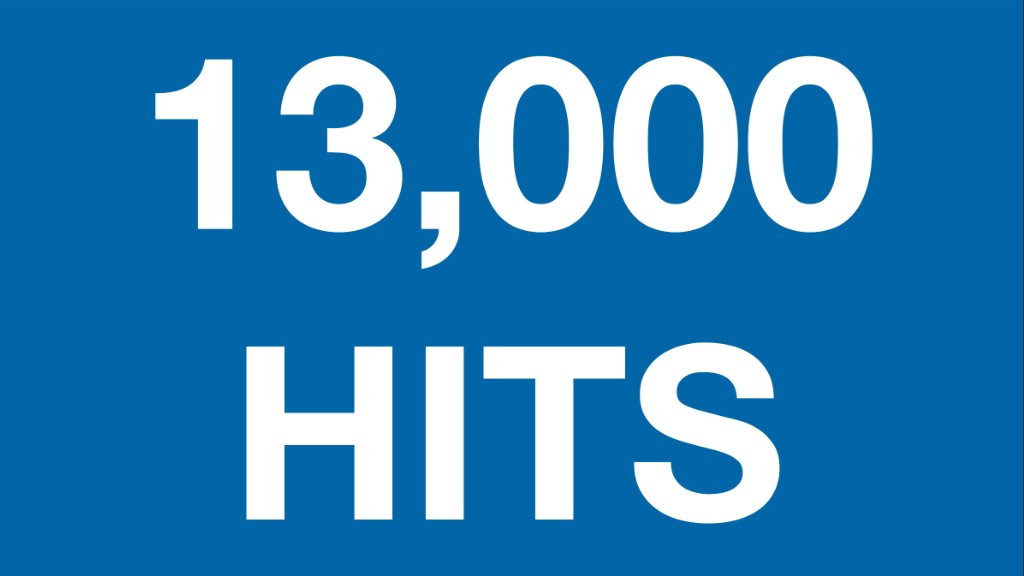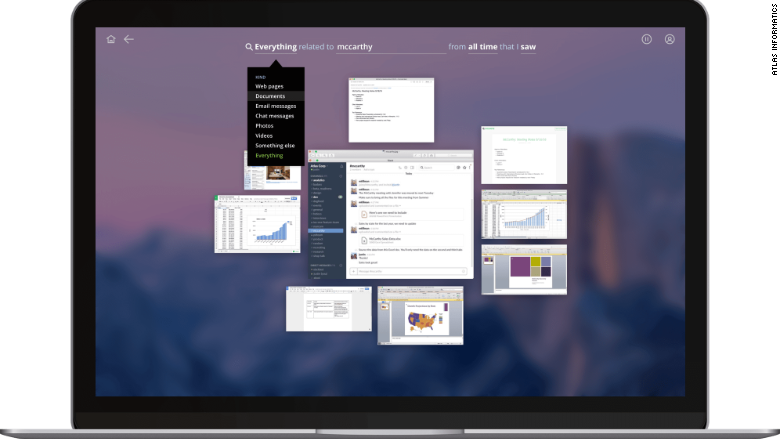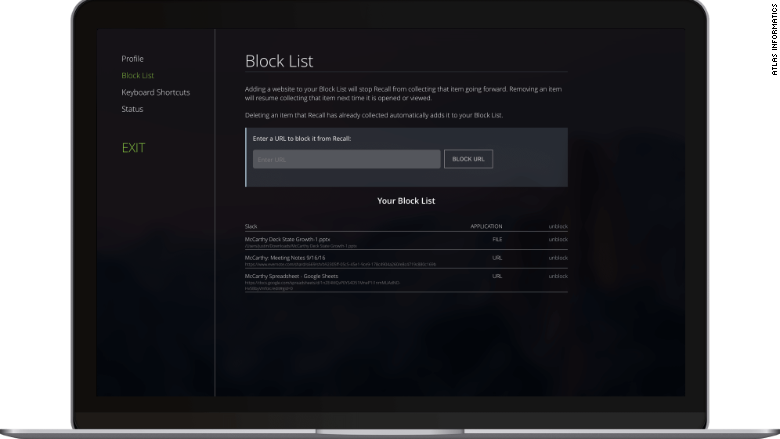
Our brains often forget where we saw something among the countless tabs and documents on our computers each day.
To make it easier to find things, Seattle-based Atlas Informatics launched Atlas Recall, which lets you search for anything you've ever looked at on your computer.
Atlas Informatics founder and CEO Jordan Ritter calls the software "a photographic memory for your digital life." In a demonstration to CNNMoney, that proved to be a fairly accurate assessment.
Once installed, Atlas Recall displays personalized search results from the app, desktop search, or Google (GOOGL)search. This includes web pages, emails, Slack chats, Netflix films, Spotify songs, or anything else that's appeared in front of your eyes on your screen.
Let's say you're planning a wedding. You can search for "wedding," and Atlas Recall will pull up calendar appointments, emails from your wedding party, websites of flower companies, photos of wedding dresses, the Spotify playlist you listened to when emailing your fiancé, and the Facebook wedding planning group you're a part of.
You can search by keyword, content type or time, and it displays all related information based on relevancy. For instance, if two documents were open at the same time and you toggled between them, they will both appear whether or not they contain a keyword.

Once installed on your hard drive and browser, Atlas Recall runs in the background and begins collecting your activity. The company captures all the content you've looked at and stores it on its servers.
So how does it work?
Computers have built-in features for people with disabilities to use hardware and software. These features -- like Apple's VoiceOver -- use accessibility APIs, the programming tools that pass information between the computer and the user. Atlas Recall taps into these tools and indexes all the data shared on-screen.
Related: Even your battery status may threaten your privacy online
Though Atlas Recall is a unique product, it's similar to Google's ecosystem that saves and tracks everything you do. When you're logged in to Google services, it collects and saves your activity, from where you go via Google Maps, to appointments you make with Google Calendar. You can search these services to find personal data.
But Atlas Recall takes that behavior and applies it to literally everything you do with your computer.
"The platform wars are over, nobody won, and no one will ever win them again," Ritter told CNNMoney. "We now have diverse sets of apps and platforms and services, and we move fluidly between all of them. What we want is something that works the way we use our devices and data."

The tool understandably raises privacy concerns.
Ritter, cofounder of Napster and no stranger to controversial file-sharing, said all the data is encrypted while it's transferred to Atlas Cloud and stored in its servers. You can block Atlas from reading and indexing links, files, and apps -- say, block it from reading your Gmail -- remove stored data, or pause Atlas Recall so it's not running in the background indefinitely.
Atlas Recall is launching in beta on Wednesday for Apple devices running macOS Sierra or OS X El Capitan. It also has a compatible iPhone app that lets you search for items, but does not index content from your phone. Ritter said an app for Windows 10 is coming soon.
The search engine is the first product from Atlas Informatics, and it's free for people to try out while in beta. The company plans to charge for premium features in the future. The Emerald City startup has raised $20.7 million from investors including Microsoft (MSFT), Nathan Myhrvold and Aspect Ventures.

